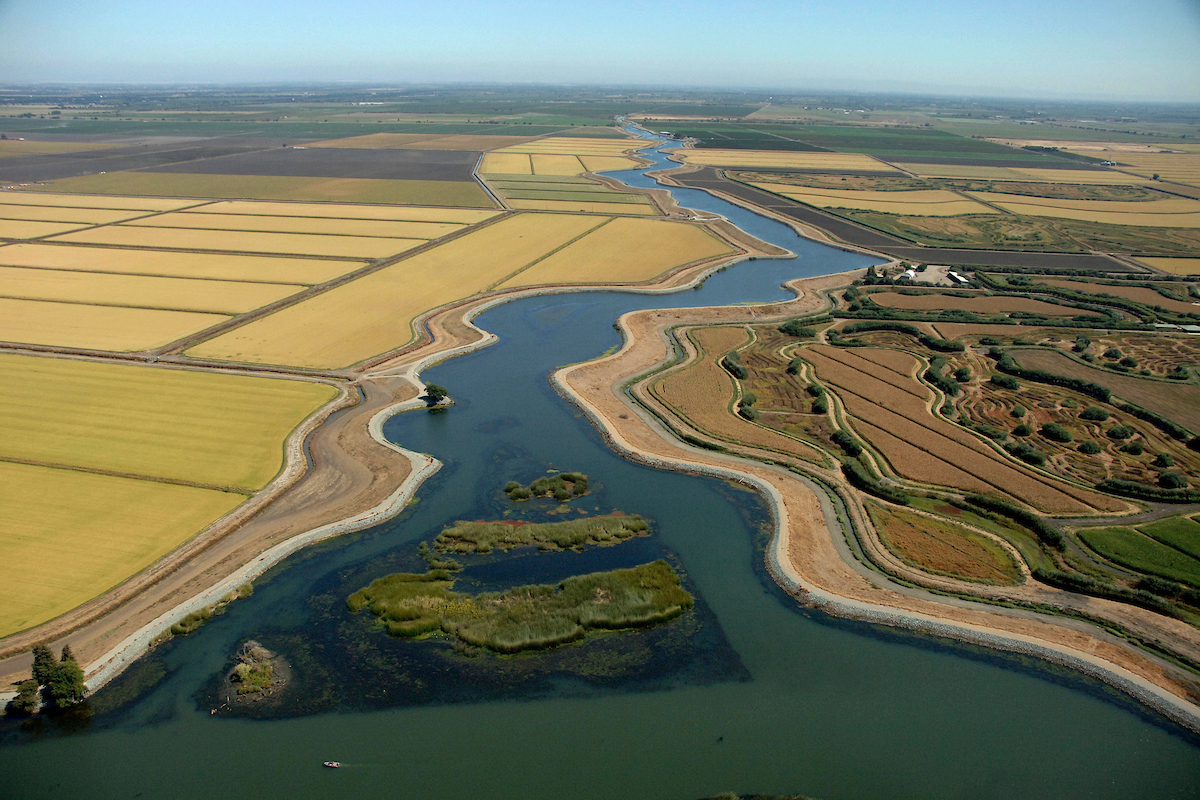August Delta Conveyance Update
An aerial view of the Delta.
An Update on Delta Conveyance
The Department of Water Resources (DWR) is continuing to work on the environmental planning and permitting to modernize State Water Project infrastructure in the Delta. This effort is consistent with Governor Newsom’s direction and support for a single-tunnel project to ensure a climate resilient water system. This process will include significant engagement with the public, especially Delta communities. The department anticipates the formal environmental review process will begin with the Notice of Preparation (NOP) under the California Environmental Quality Act (CEQA) near the end of this year.
An Overview of the Organizational Structure
As the owner and operator of the State Water Project, DWR will be the lead in conducting the environmental review and permitting for the project. The Delta Conveyance Design and Construction Authority (DCA) and the participating public water agencies of the State Water Contractors have an important role to play under DWR’s oversight. The following graphic provides an overview of the roles and responsibilities of the agencies involved in developing Delta conveyance.
A Robust Public Outreach and Participation Approach
DWR intends to build on work that has already been done to do additional design and engineering to avoid or minimize the project’s local impacts. In addition to engaging the public through the CEQA process, the state is planning multiple opportunities to gather public input and ideas:
1. Stakeholder engagement: No one knows the Delta better than those who live, work and play in the region. Through dialogue and feedback, the community can give voice to the Delta’s unique character and help guide the project to provide local benefits. Forums are being organized to provide an opportunity for a meaningful exchange of ideas and information geared toward identifying
solutions that respect the Delta’s history and support its future, including:
- Footprint considerations
- Design concepts that help create community benefits
- Measures to avoid or minimize construction effects
- Opportunities for economic and social benefits
2. Project features that result in community benefits: DWR and the DCA will work proactively to identify opportunities to create community benefits either through creative win-win project features or by directing construction expenditures toward activities that create long-term economic development. This is best accomplished with significant input from the local communities.
3. Logistics that reduce community impacts: The location of intakes, shafts and other project features are directly related to the volume of impact felt by the community during construction. To ensure a project footprint that minimizes truck trips, noise and other construction-related impacts, we will work directly with the Delta community to create a design that thoughtfully plans for the transport and stationing of construction workers, activities and materials.
4. A project that aims at zero: We will proactively seek methods and new technology to significantly reduce or eliminate green house gas emissions associated with construction and operations. For example, the use of electric semi-trucks and container ships to haul material could significantly reduce environmental impacts while helping combat climate change.
Data Collection and Field Work
Field surveys and data collection will be an important part of the environmental review. This work helps to determine project features, potential alignment options and environmental impacts for a single tunnel project. Any new field surveys, soil sampling or other data collection will be conducted in compliance with state regulations and in coordination with local county officials. The work would only be conducted after proper notification and coordination with landowners.
Small Business, Disabled Veteran Business Enterprise, and Local small Business Program
Tapping into local talent and experts will be an important part of future construction. As such, the DCA will organize a Small Business, Disabled Veteran Business Enterprise, and Local Small Business Program to ensure that local entrepreneurs have the tools, information and access they need to take advantage of potential business opportunities as they become available. To ensure the program is successful, it must meet the needs of stakeholders, consider best practices, and create win-win opportunities. The DCA will engage with businesses and solicit feedback about what practices they believe are the most effective for enhancing local business participation and to understand their perspective on how to create a best in class program. Watch this space for additional information, as well as the DCA’s website.
